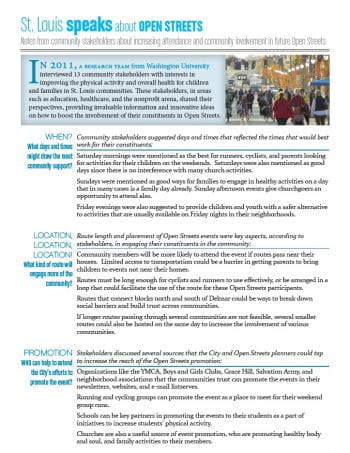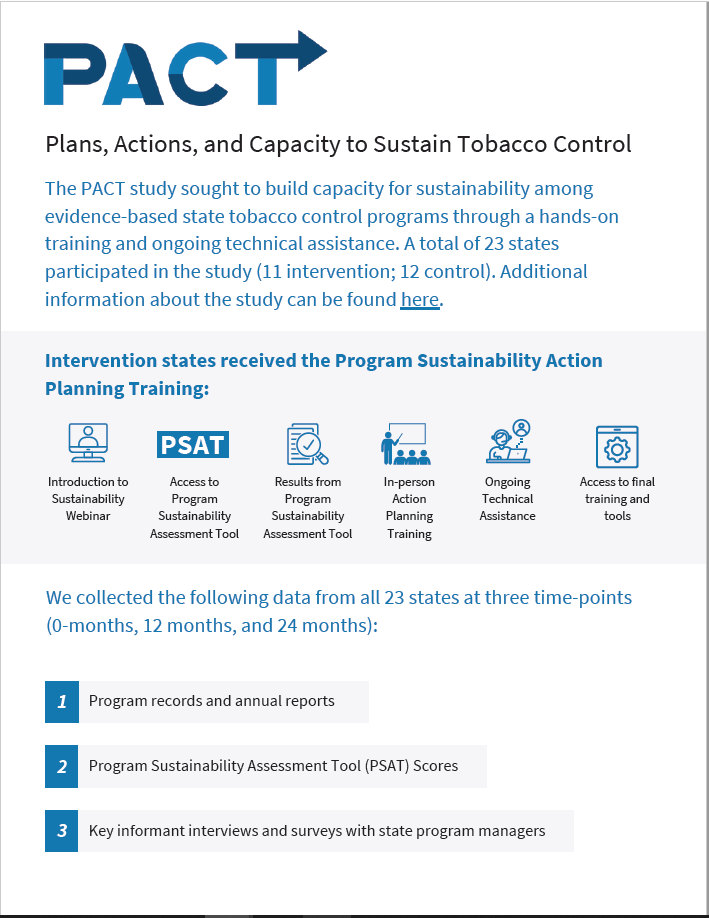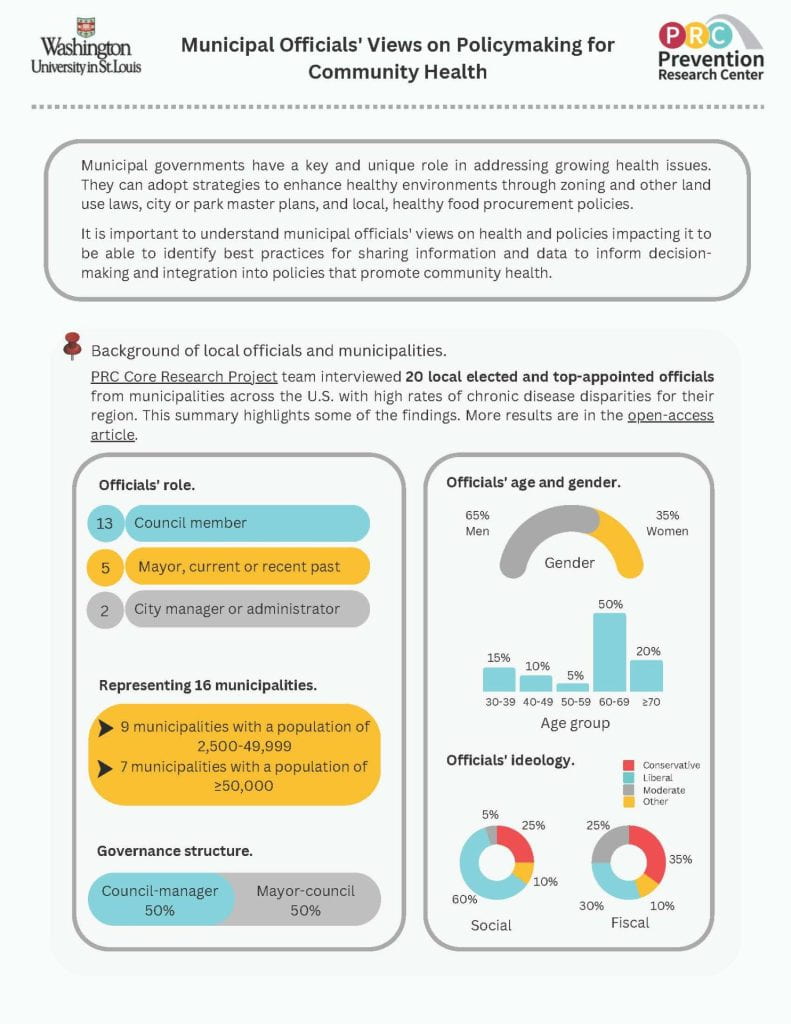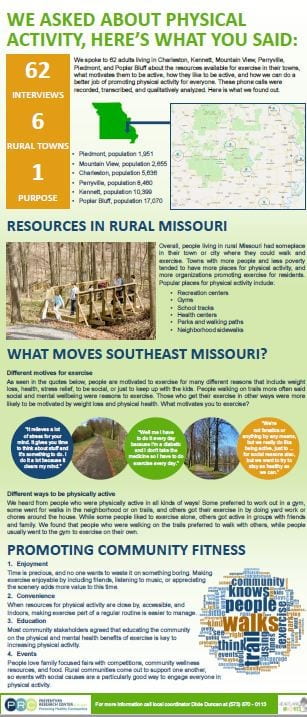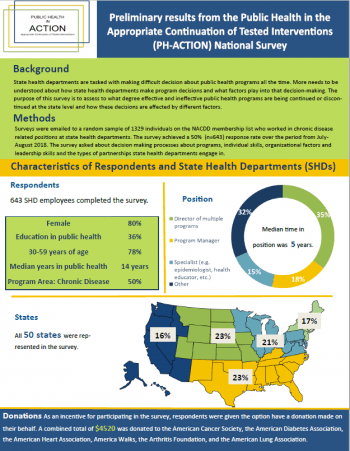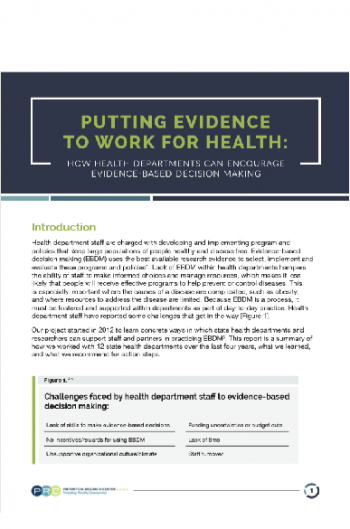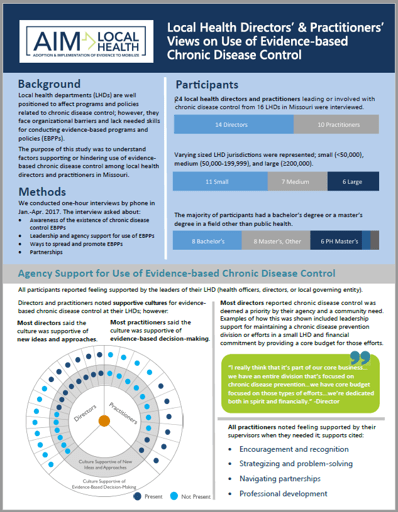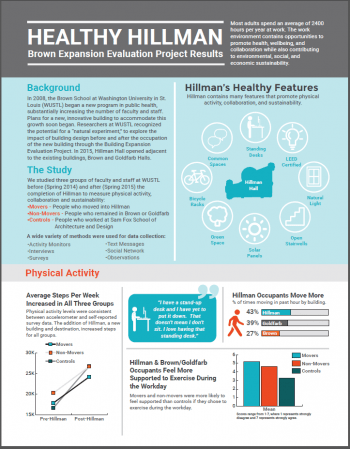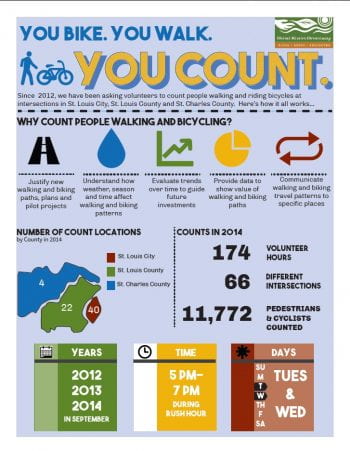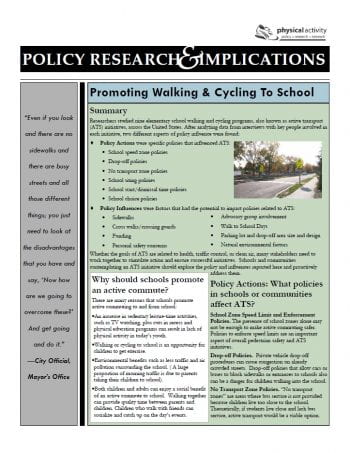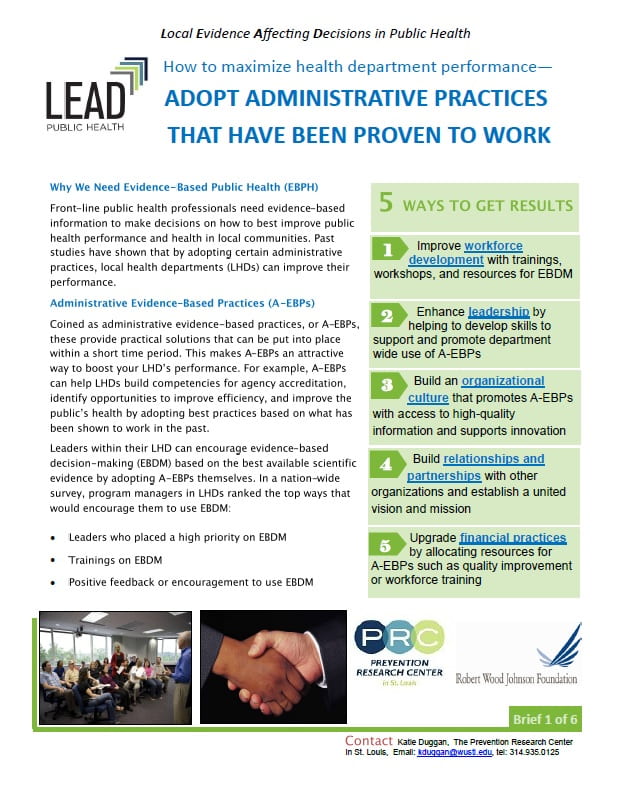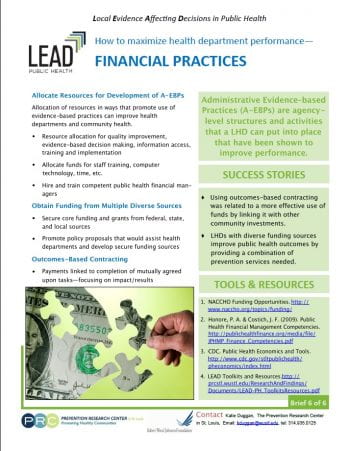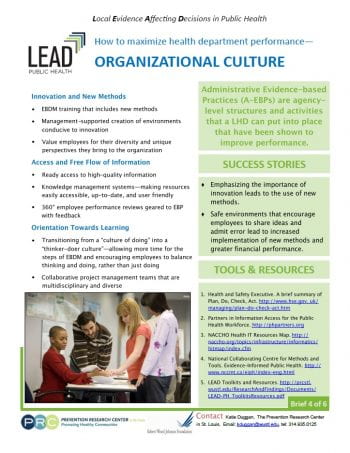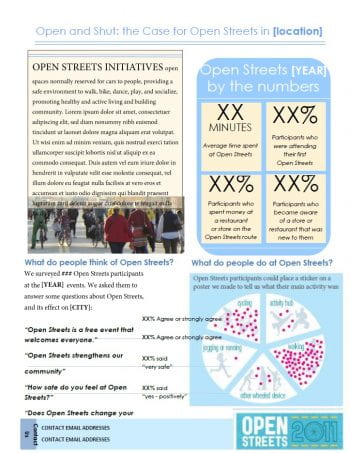- Putting Evidence to Work for Health: How Health Departments can Encourage Evidence-Based Decision Making
- A-EBPs: An Overview
- Workforce Development
- Financial Practices
- Enhancing Leadership
- Organizational Culture
- Relationships and Partnerships
- Advice and Recommendations for ending Ineffective Programs from State Public Health Professionals Brief
- State Health Department Employees’ Views on Why Some Ineffective Programs Continue to be Implemented Graphic
- Why a program is considered ineffective and why they continue Brief
- 5 Strategies for Ending Ineffective Programs Diagram
- Program Adaptation by State Health Departments Timeline Diagram
- Leadership Qualities to Promote Effective Public Health Programs Visual Graphic
- Local Policymakers Likely to Use Easy to Understand and Credible Health Policy Briefs with Local Data
- Municipal Officials’ Views on Policymaking for Health
- Ways Local Health Departments Can Encourage EBDM (AIM-Local Health)
- Public Health in the Appropriate Continuation of Tested Interventions (PH-ACTION) National Survey
- AIM Local Health National Survey Summary Infographic
- Local Health Directors’ & Practitioners’ Views of Use of Evidence-based Chronic Disease Control
- A-EBPs: An Overview
- Workforce Development
- Financial Practices
- Enhancing Leadership
- Organizational Culture
- Relationships and Partnerships
Local Policymakers Likely to Use Easy to Understand and Credible Health Policy Briefs with Local Data
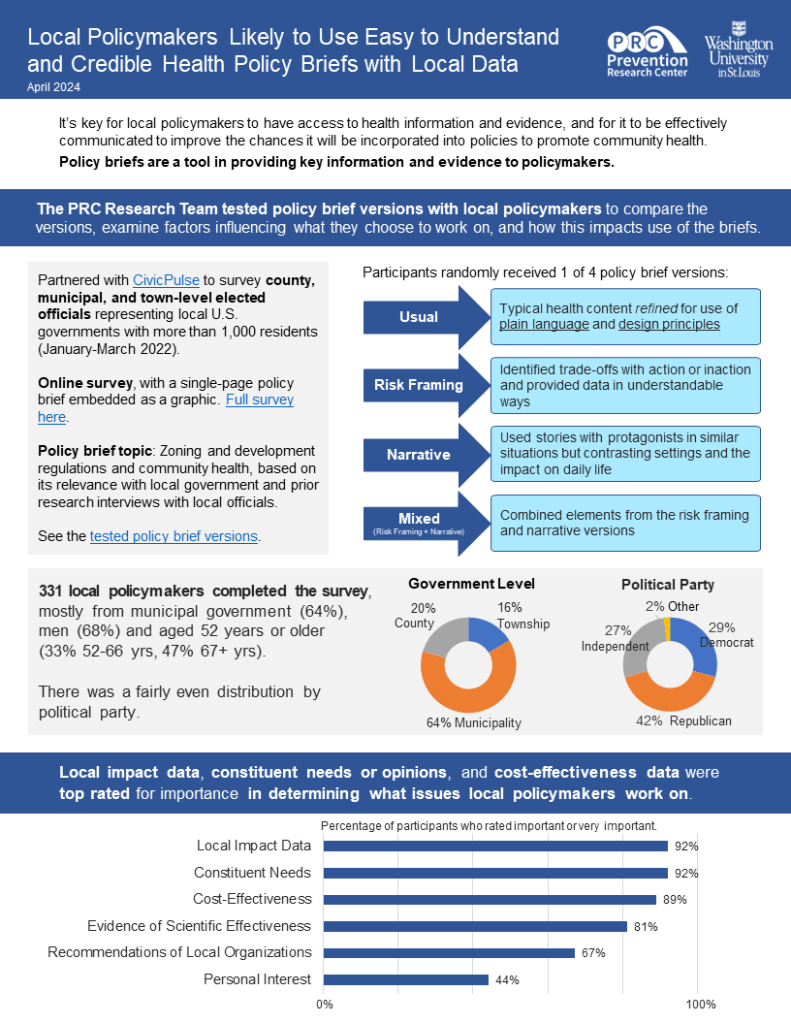
Policy briefs are a tool in providing key information and evidence to policymakers. The PRC Core Research Project Team tested policy brief versions on a community health issue with local policymakers to compare the versions, examine factors influencing what they choose to work on, and how this impacts use of the briefs. This summary outlines what was done and the key insights.
Final Results of the Plans, Actions, and Capacity to Sustain Tobacco Control (PACT) Study
The PACT study sought to build capacity for sustainability among evidence-based state tobacco control programs through a hands-on training and ongoing technical assistance. A total of 23 states participated in the study (11 intervention; 12 control). Additional information about the study can be found here.
Understanding Health Equity in Public Health Practice
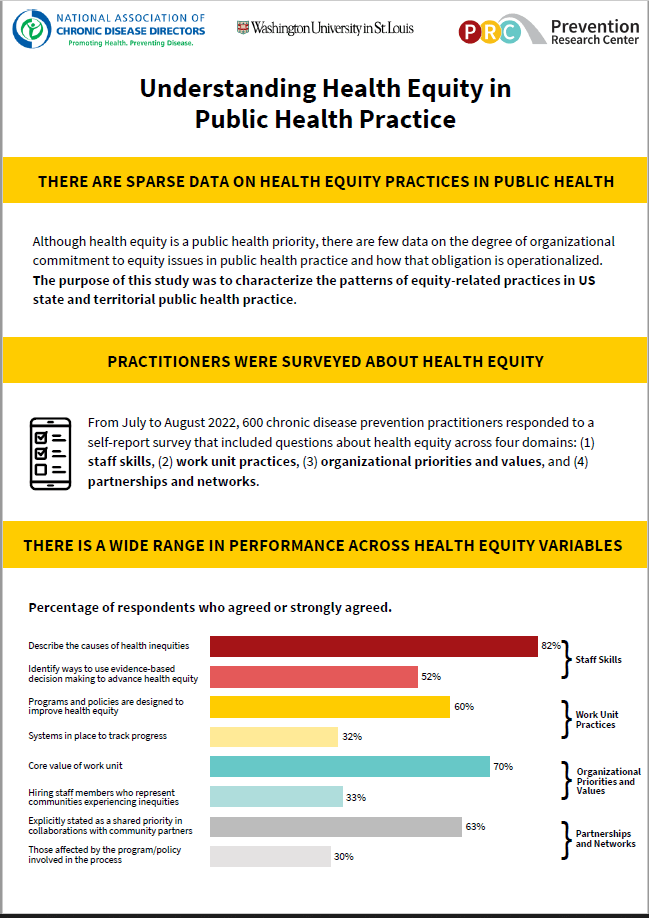
Although health equity is a public health priority, there are few data on the degree of organizational commitment to equity issues in public health practice and how that obligation is operationalized.
The purpose of this study was to characterize the patterns of equity-related practices in US state and territorial public health practice.
Municipal Officials’ Views on Policymaking for Health
This is a summary of findings from interviews with 20 local elected and appointed officials from municipalities across the U.S. with high rates of chronic disease disparities for their region. The purpose was to understand factors affecting officials’ policymaking for community health, and identify the best ways to engage with officials and provide information to inform decision-making and be included in policies that promote community health.
Ways Local Health Departments Can Encourage Evidence-Based Decision-Making

A PRC team conducted a multi-year project with local health departments to build EBDM. The project included a multi-day evidence-based decision-making training followed by customized technical assistance, support and information resources. Here are some of the project findings and recommendations from participating local health departments.
COVID and Child PA White Paper
Advice and Recommendations for ending Ineffective Programs from State Public Health Professionals
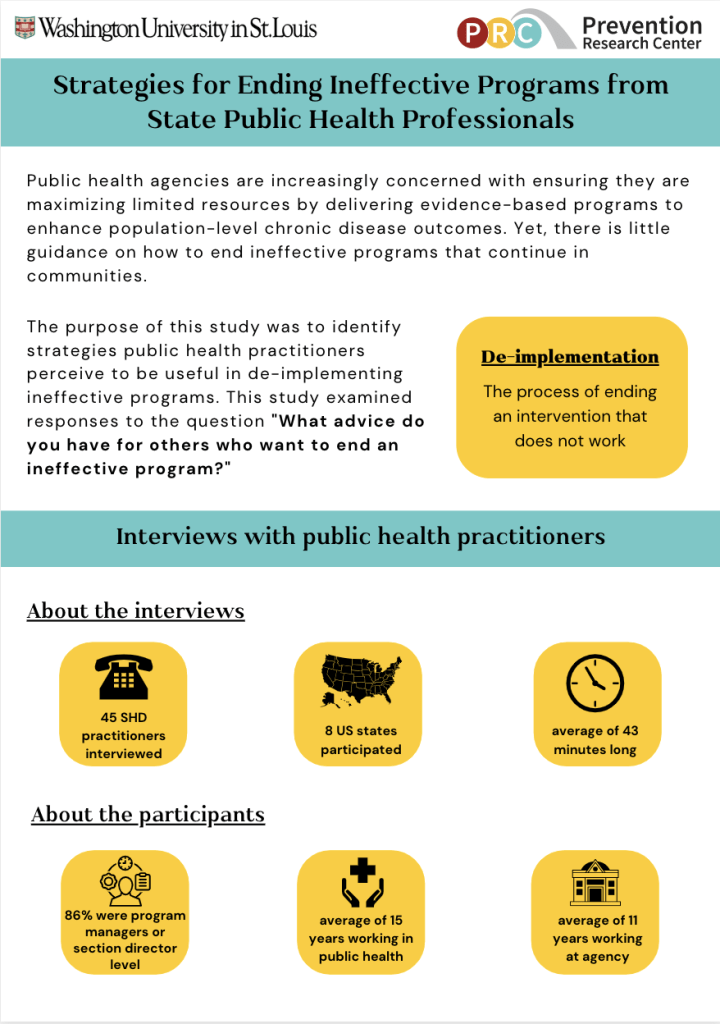
In 2018, 643 state health department employees completed a comprehensive survey to understand the reasons effective programs sometimes end and ineffective programs sometimes continue. This concept matters for understanding how to use resources more wisely. Original research published in BMC Public Health by Padek et al., January 2021.
State Health Department Employees’ Views on Why Some Ineffective Programs Continue to be Implemented
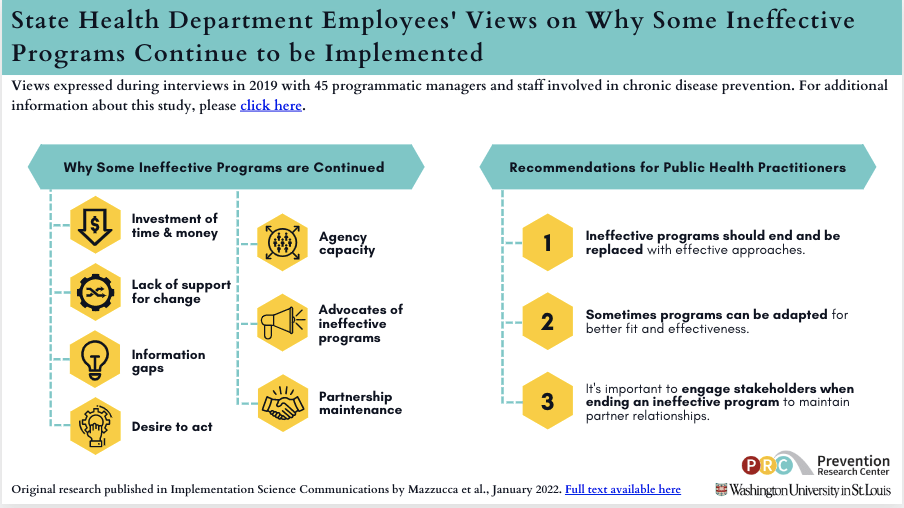
Views expressed during interviews in 2019 with 45 programmatic managers and staff involved in chronic disease prevention. For additional information about this study
Why Some Ineffective Programs Continue to be Implemented
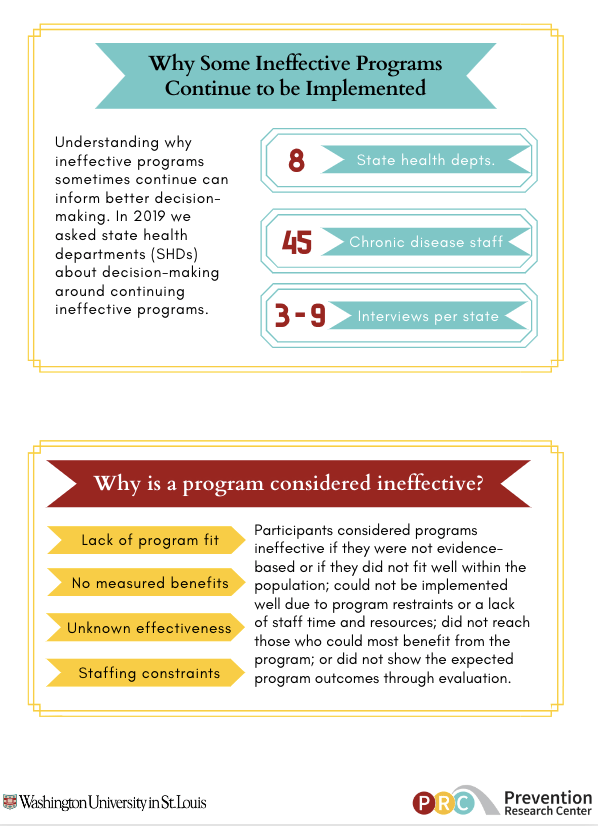
Understanding why ineffective programs sometimes continue can inform better decision-making. In 2019 we asked state health departments (SHDs)about decision-making around continuing ineffective programs.
Strategies for Ending Ineffective Programs from State Public Health Professionals
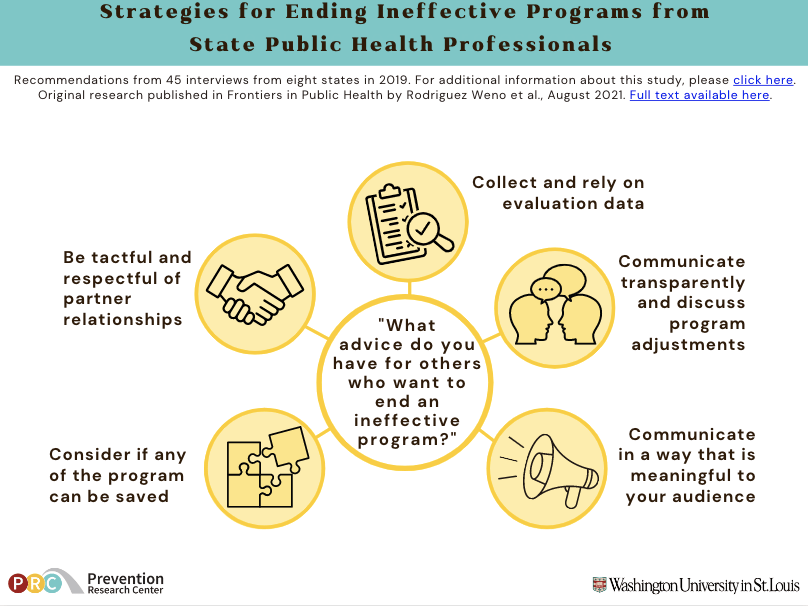
Recommendations from 45 interviews from eight states in 2019. For additional information about this study, please click here. Original research published in Frontiers in Public Health by Rodriguez Weno et al., August 2021.
Strategies for Ending Ineffective Programs from State Public Health Professionals

Public health agencies are increasingly concerned with ensuring they are maximizing limited resources by delivering evidence-based programs to enhance population-level chronic disease outcomes. Yet, there is little guidance on how to end ineffective programs that continue in communities.
The purpose of this study was to identify strategies public health practitioners perceive to be useful in de-implementing ineffective programs. This study examined responses to the question “What advice do you have for others who want to end an ineffective program?
Program Adaptation by State Health Departments
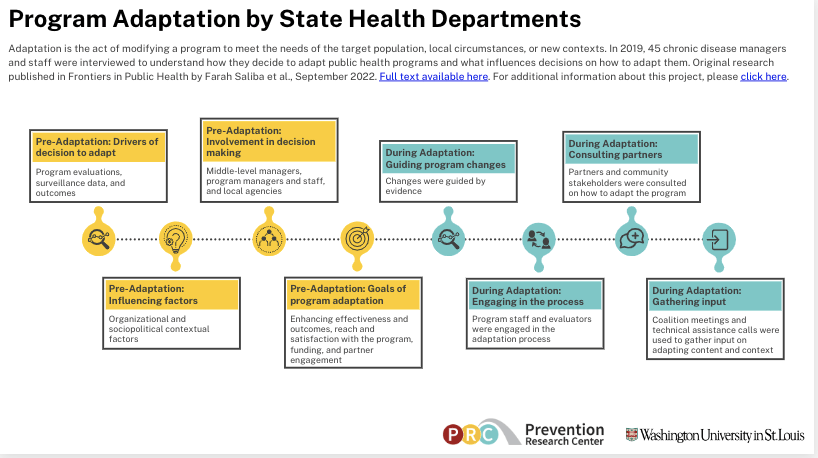
Adaptation is the act of modifying a program to meet the needs of the target population, local circumstances, or new contexts. In 2019, 45 chronic disease managers and staff were interviewed to understand how they decide to adapt public health programs and what influences decisions on how to adapt them. Original research published in Frontiers in Public Health by Farah Saliba et al., September 2022.
Leadership Qualities to Promote Effective Public Health Programs
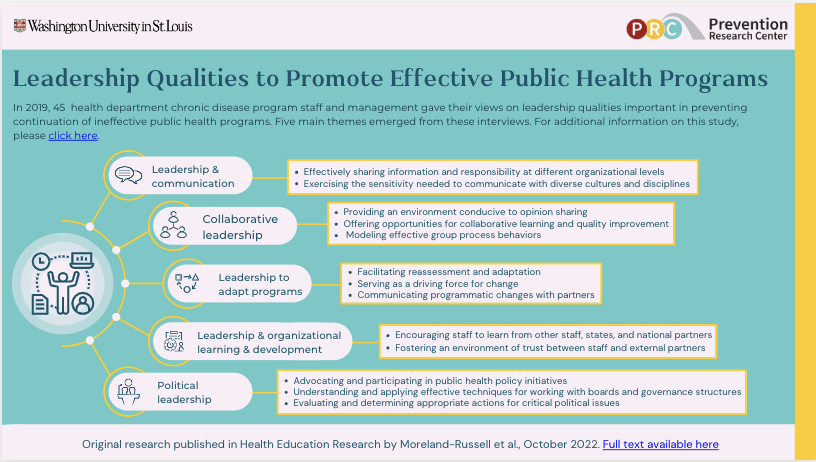
In 2019, 45 health department chronic disease program staff and management gave their views on leadership qualities important in preventing continuation of ineffective public health programs. Five main themes emerged from these interviews.
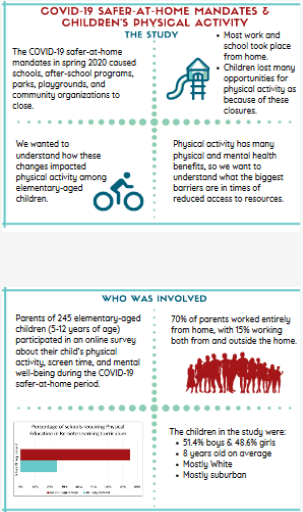
This white paper shows results of a study that looked at changes in childhood activity behaviors after the start of the Covid-19 pandemic.
Heartland Moves Community Interviews
We spoke to 62 adults living in rural southeast Missouri about their resources for physical activity, their motivation, and the ways they like to exercise. These phone calls were recorded transcribed and qualitatively analyzed. Here is what we found.
Preliminary results from the Public Health in the Appropriate Continuation of Tested Interventions (PH-ACTION) National Survey
More needs to be understood about how state health departments make program decisions and what factors play into that decision-making. The purpose of this survey is to assess to what degree effective and ineffective public health programs are being continued or discontinued at the state level and how these decisions are affected by different factors.
Putting Evidence to Work For Health: How Health Departments Can Encourage Evidence-Based Decision Making
Our project started in 2012 to learn concrete ways in which state health departments and researchers can support staff and partners in practicing EBDM. This report is a summary of how we worked with 12 state health departments over the last four years, what we learned, and what we recommend for action steps.
AIM Local Health: National Survey Summary Infographic
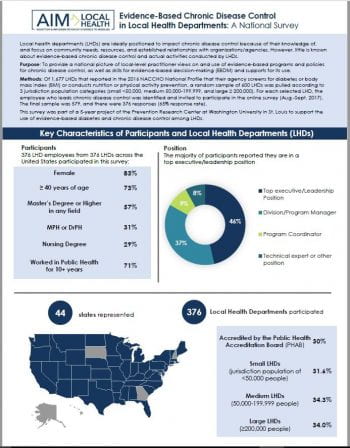
From Aug.-Sept. 2017, researchers from the PRC-StL administered a survey of public health practitioners leading chronic disease control from local health departments (LHDs) across the United States to obtain a national picture of local-level views on and use of evidence-based programs for chronic disease control, and skills and supports for evidence-based practices. This infographic summarizes the findings.
Local Health Directors’ & Practitioners’ Views of Use of Evidence-based Chronic Disease Control
In Jan.-Apr. 2017, researchers from the PRC-StL conducted phone interviews with local health directors and practitioners from local health departments (LHDs) in Missouri to understand factors supporting or hindering use of evidence-based chronic disease control. This infographic summarizes the findings.
Healthy Hillman Infographic
Researchers at the Prevention Research Center in St. Louis conducted a “natural experiment,” to explore the impact of building design before and after the occupation of a new academic building through the Building Expansion Evaluation Project. This infographic summarizes the results from this study.
You Bike. You Walk. You Count.
From 2012-2014, volunteers counted people walking and riding bicycles at intersections in St. Louis City, St. Louis County and St. Charles County. This was prepared for Great Rivers Greenway.
Promoting Walking & Cycling to School
Researchers studied nine elementary school walking and cycling programs, also known as active transport (ATS) initiatives. Two different aspects of policy influence were found: policy actions and policy influences.
A-EBPs: An Overview
This brief provides an overview of Administrative Evidence-Based Practices (A-EBPs) and the need for including them in public health.
Workforce Development
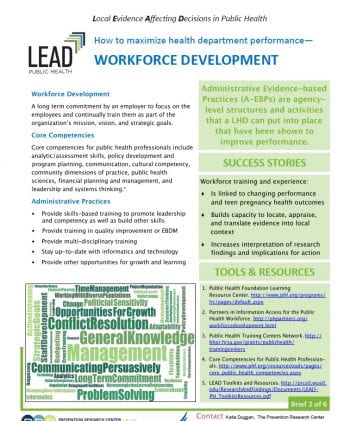
This brief provides information on workplace development including administrative practices, core competencies, tools, and resources.
Financial Practices
This brief provides information on financial practices including allocating resources, obtaining funding, and outcomes-based contracting.
Enhancing Leadership
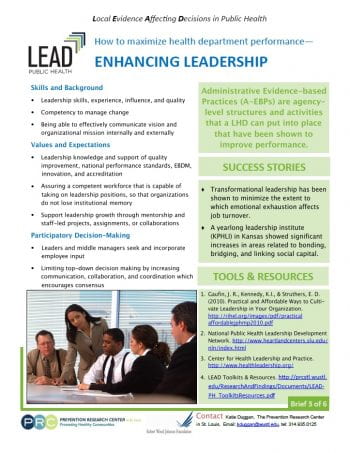
This brief provides information on enhancing leadership, including values and expectations to promote participatory decision making.
Organizational Culture
This brief provides information on organizational culture, including tips on innovation, accessing information, and collaboration.
Relationships and Partnerships
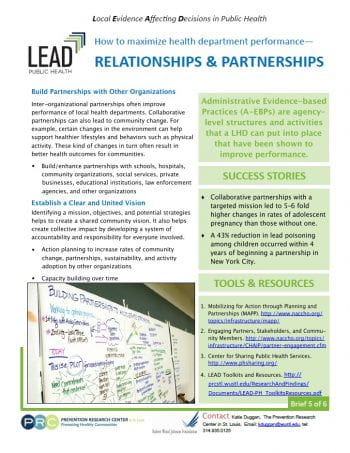
This brief is about relationships and partnerships, including building inter-organizational partnerships and establishing clear visions.
Open Streets Policy Brief Example
